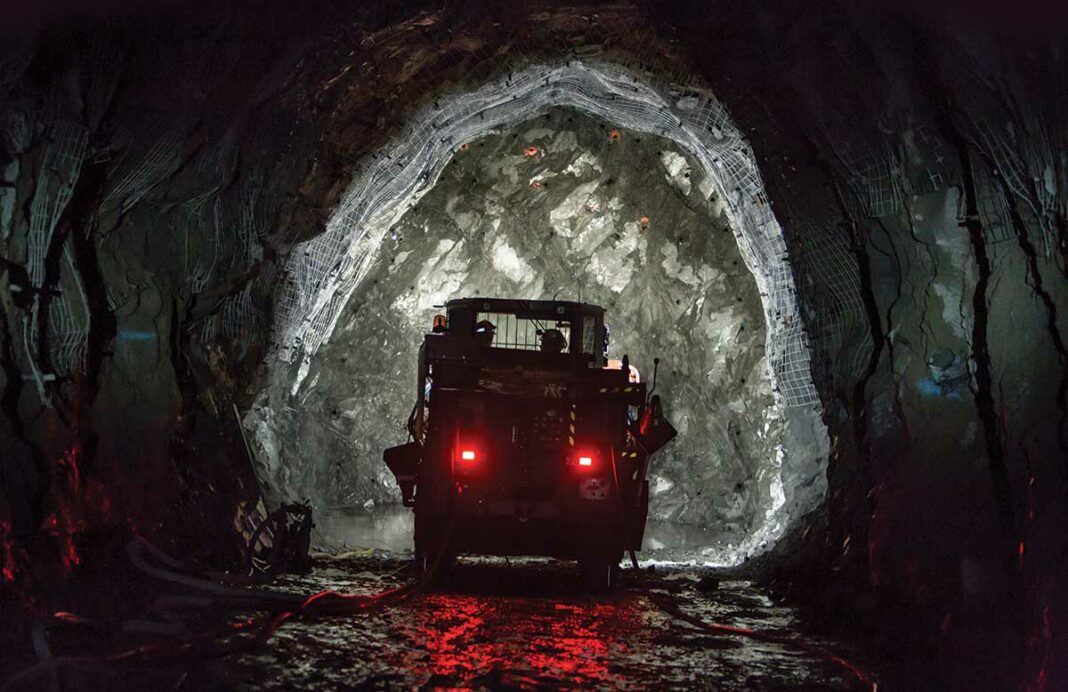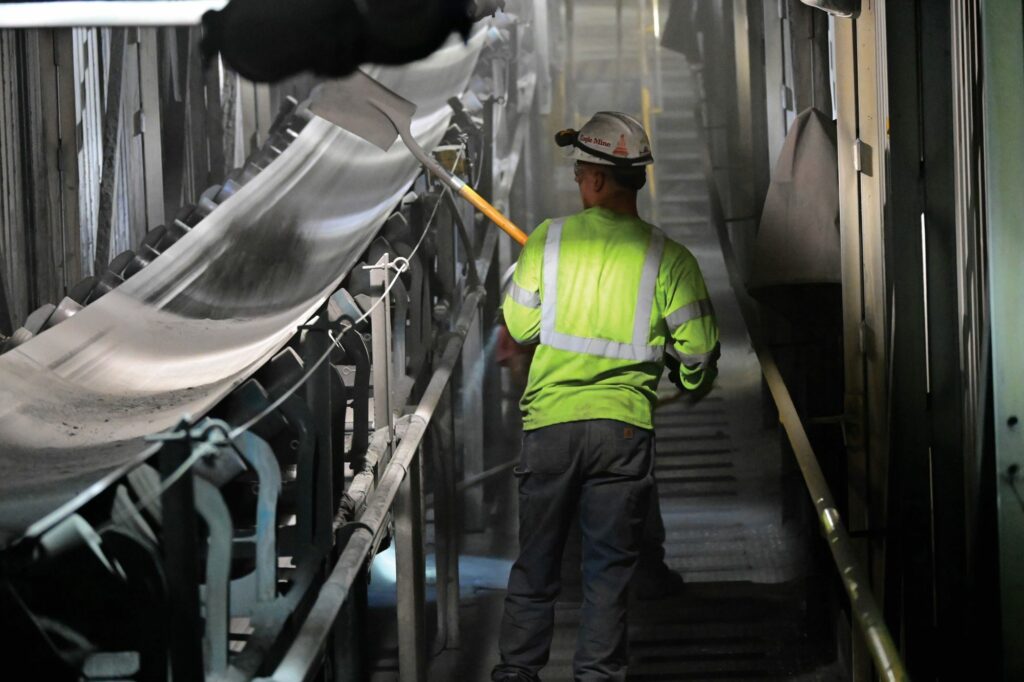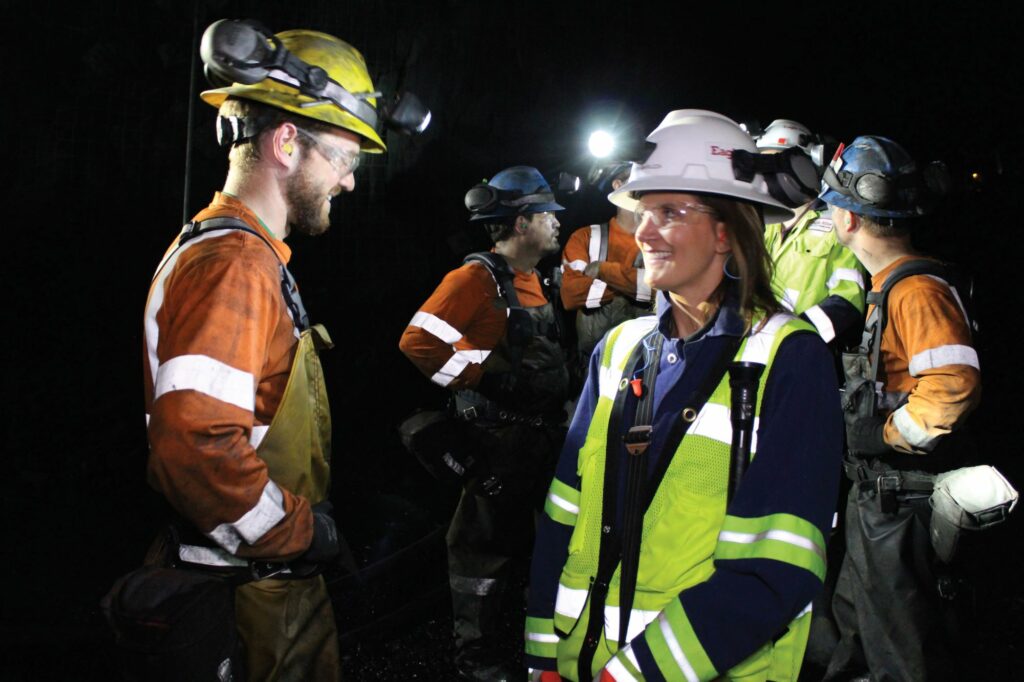Not many business models begin with an ending in mind. But that’s how Eagle Mine in western Marquette County started its business activity.
“With the last 10 years or so, that’s what sustainable mining means,” said External Communications Manager Matt Johnson of Lundin Mining Co., which owns Eagle Mine. “You design a mine for closure. Before you even open, you have to prepare to close it responsibly.”
Eagle Mine is the only active nickel mine in the United States right now, with a concentration on unearthing an ore body that hopes to produce enough nickel to meet the ever-rising global demand.
Nickel doesn’t have the same cachet as gold and silver, but it is an absolute necessity in the production of things like stainless steel products. Consider your favorite kitchen upgrade with a stainless refrigerator, stove, and dishwasher. Each of those appliances benefits from the antimicrobial, anti-rust, and anti-corrosion attributes of stainless steel, but the nickel makes them even stronger and more resistant to wear and tear.
In fact, there is an even greater demand for nickel these days as we see energy-efficient electric vehicles hitting the scene. Nickel is a mineral that helps increase energy storage in lithium-ion batteries, boosting the range electric cars can drive on a single charge.
“There is no electric vehicle battery without nickel,” notes Johnson. “In 2017, about 3% of nickel went into the EV industry. In the next 10 years, we’re looking at closer to 40%.”
It’s a complex cycle of electric vehicles helping to reduce emissions and the impact on the climate, and encouraging additional production of environmentally friendly cars. However, mining is at the heart of that production stream. While nickel could be mined and purchased from other countries, many of them have much looser rules and guidelines regulating them. There are big benefits to having a U.S.-based mine that holds itself to the highest environmental and social standards.
“Part of our company’s mission is to fund and partner with groups to delve deeper into the research, create best-practice critical material development, and create a new stream for critical minerals for batteries,” said Johnson. “The increased demand for nickel is nearly 100 times what it was just a decade ago. So, we need to increase our level of responsibility to make sure we are helping to solve problems, not create more.”
Eagle Mine has developed many relationships to help create better systems for solving those problems. They’ve partnered with Michigan Technological University to develop new research technologies that create sustainable processes in order to supply critical minerals for battery manufacturing, as well as to make a concentrated effort to improve battery recycling. These efforts are necessary, but are also just the beginning to meet the ever-increasing demand for metal in new products and technologies.
“We are leaders in mining best practices,” said Johnson. “We need to balance meeting the demand with making sure our impact is as limited as possible.”
While Eagle Mine is identifying the environmental impacts, they also concern themselves with community impact. They hold local forums every six months to engage in folks’ questions and concerns and ensure they are responding in kind.
“Constructive dialogue is critical to what we do. We don’t have all the answers, because we can’t know all the questions. We listen and respond seriously to the community,” said Johnson. “We don’t just have a responsibility to the community while the mine is open, we need to make sure we don’t have a negative impact once it closes as well.”
Right now it looks like the mine could close sometime in the next four years, unless bigger ore stores are discovered. For now, Eagle Mine is keeping the nickel coming with the help of their nearly 400 employees to meet the needs of the electric vehicle industry and cleaner transportation.
“At this point in our country’s production history, we need minerals, and those minerals need to be mined,” said Johnson. “But we’re going to make sure it’s done sustainably, responsibly, and transparently.”








